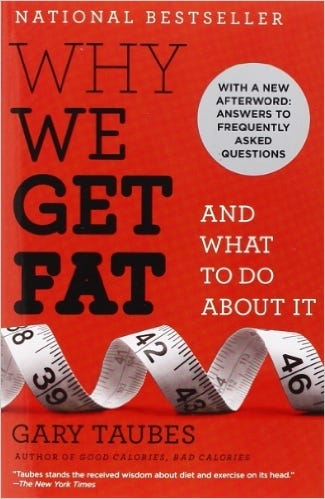Learn how an overly carbohydrate rich diet can cause us to get fat and sick

Caloric or energy balance is an oversimplification
The oversimplification that we get fat simply by consuming more calories than we need doesn’t do the complex processes of our body justice. It fails to address why some impoverished and underfed people get fat like, for instance, some indigenous mothers with deficient children in America. Clearly, they weren’t fat because they ate all the food and let their children starve.
In the 1950’s it became clear that hormonal imbalance was the main cause of obesity not by an eating disorder. But later that idea gradually disappeared with the paradigm shift the demonization of fat brought with it. Among rising cardiovascular diseases and obesity, the flawed logic that fat makes us fat and sick became popular.
The fat doctrine became so impregnated in the culture that it became nearly impossible to undo that misconception. Meanwhile, heart diseases and obesity continued rising.
Insulin makes us fat
Eating less and exercising more, although a good starting point, isn’t what really solves overweight problems.
Insulin is what tells our cells to store energy (fat) and transfers energy to our muscle tissue. When we eat carbohydrates, for example, sweets like bread, potatoes, rice, noodles, etc., our bloodstream gets flooded with sugar in the form of glucose, forcing our body to release insulin. As high blood sugar levels aren’t healthy, insulin has to get rid of the excess sugar either by directly using it as energy or storing it as fat.
The body stores excessive energy for tough times, as our ancestors hadn’t always food available and thus had to survive with energy stored as fat.
Growing fat cells require more energy
A growing child needs a lot of energy, which makes the child constantly hungry, but also makes it have less energy for other activities. In a similar manner, when we grow fatter, we feel more lethargic and experience an increased appetite to satisfy the increased energy demand of our growing fat cells.
We didn’t evolve with as many carbohydrates as available today
For 2.5 million years, evolution tailored our bodies to adapt best to our diet, but flour became only part of our nutrition in the last 12.000 years.
Before the rise of agriculture, our ancestors lived as hunters and gatherers. As such, their nutrition consisted mainly of meat, fish, and fruits. In other words, their diets were the opposite of our modern diet which consists mostly out of carbohydrates.
Too many carbohydrates over a long time can cause insulin resistance and other problems
Long time overexposure can make cells irresponsive to insulins signaling. By eating foods rich in carbohydrates all the time, we cause a constant release of insulin which can cause diabetes or high blood pressure over the long term.
The regular insulin rushes cause our cells to become resistant to the signal, which in cause causes the body to release more insulin, causing a catch-22 situation.
There is perhaps also a relation between a diet high in carbohydrates and breast cancer. Japanese woman are usually unlikely to get breast cancer, but once they immigrated to the US, they mirror those of other women in the US.
[ The book suggests that the fact that immigrant people from all over the world suffer from many common western diseases only after they immigrated, should be attributed to carbohydrates. But this may have more to do with a plant based diet as resulting from a lot of research exposed in the book The China Study. ]
Avoid foods rich in carbohydrates to lose weight
Since calories get stored as fat only when insulin is released, the author argues that we should get rid of food rich in carbohydrates.
The sweeter the food, the more simple, easily digestible carbohydrates it contains, and the more likely it will make us fat.
Sugar-containing drinks are to be avoided, and even cereal products and starchy foods contain a lot of energy.
Vegetables, in contrast, have a low impact on blood sugar and thus release less insulin. If we get more slowly digestible food in our diet, instead of sugar-rich food, we not only prevent the storage of fat (anabolic state), we also help the body release fat as energy (catabolic state).
